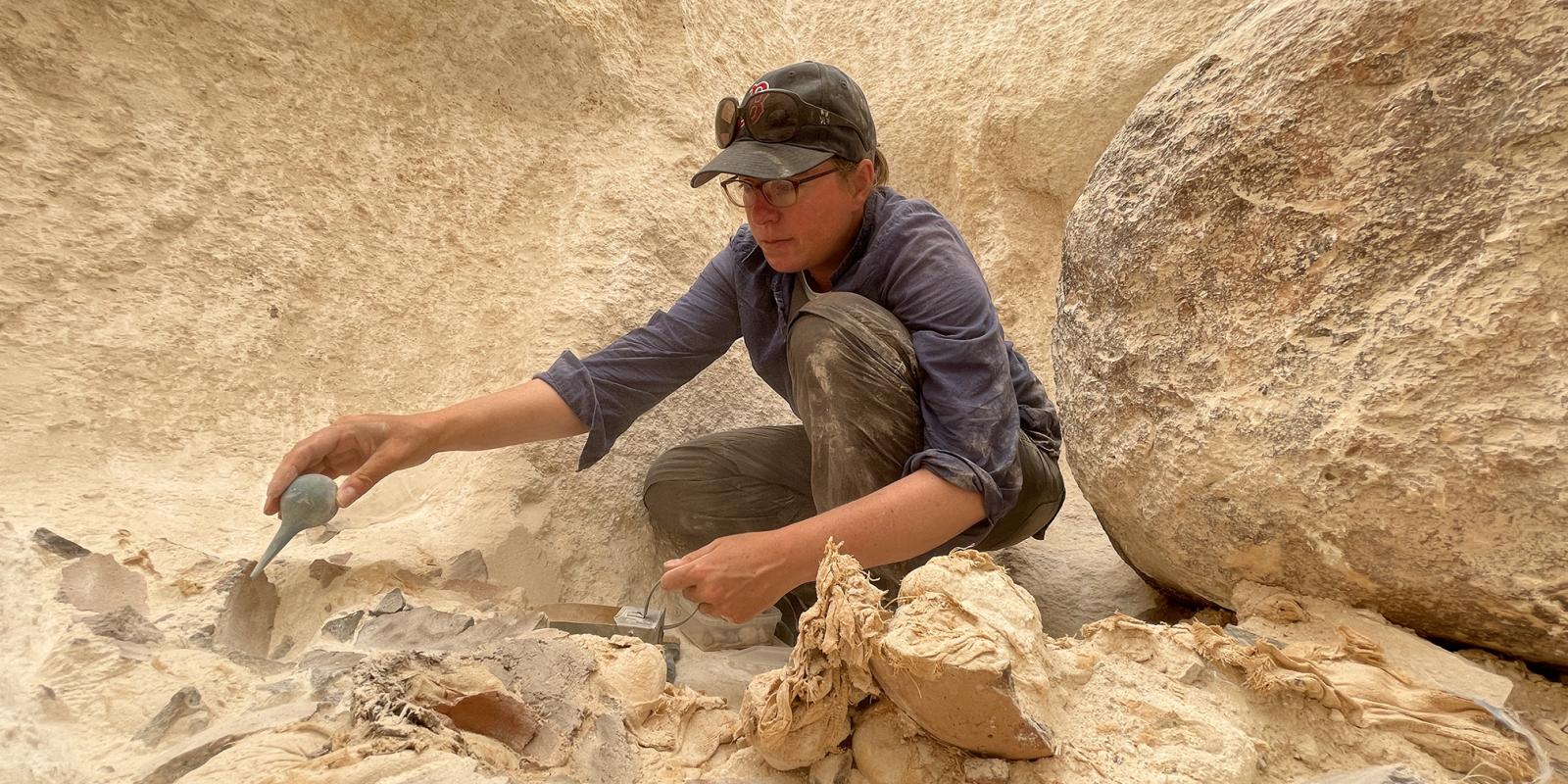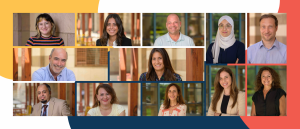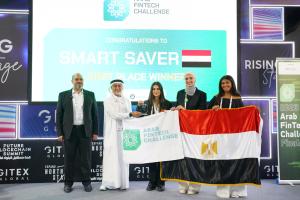
Marleen De Meyer on Interdisciplinary Archaeology
What do geographers, anthropologists, artists, engineers, botanists, pottery experts, photographers, Egyptologists and archaeologists have in common? Every single one has an important place at an excavation.
“You know, excavations nowadays are no longer just an Egyptologist with a brush. It's a huge, interdisciplinary team,” laughs Marleen De Meyer, the William Kelly Simpson Visiting Professor in Egyptology at AUC.
De Meyer appreciates this aspect of her job: There’s a place for everyone, and the more diverse your team is, the more detailed and fascinating the portrait of ancient civilizations can become. From the various medical conditions they had down to the type of paint used for their coffins, an amazing amount of detail can be deduced from the barest remains. But how exactly do all the pieces come together in the field? The answer is in a lot of expert, detailed teamwork.
Focusing on a site in Middle Egypt called Dayr al-Barsha, De Meyer co-directs an archaeological project that is the first major excavation at this location since 1915. “The necropolis has been in use from the beginning of Egyptian history until the very end. Nearly every period is represented there,” she explains.
The team’s research question is much broader than just documenting individual tombs, but rather engages in a full chronological analysis of the area from beginning to end. “What we want is to understand how this site developed through all this time,” says De Meyer. “We're talking several millennia here, not just centuries.”
De Meyer’s interest is in funerary culture, and Dayr al-Barsha hosts a rich archive to analyze. “Even a plundered tomb is very interesting to an Egyptologist. I mean, just the smallest piece of a coffin is enough to tell you which type was once present,” she says. “The climate here in Egypt is amazing– everything is preserved, even materials that would decay in other circumstances such as wood, textile, human remains, plant remains, and more. This year I excavated a rare Middle Kingdom embalming deposit in which 4000 year old linen bags of natron were perfectly preserved. These materials were used in the mummification process to desiccate the body.”
Every surviving detail holds significance to a different expert. Botanists, for example, can determine the type of wood used to make a coffin and through this deduce information on the social class of its occupant. Physical anthropologists can look at the way human bones have healed, and at Dayr al-Barsha they were able to determine that successful amputations were performed to manage conditions like diabetes. Geographers examine where the Nile flowed in the past, artists are essential to draw detailed renderings of artifacts, while engineers help with digital scanning and 3D modeling.
“I sometimes tell students that the best thing to do if you want to end up working on excavations is not necessarily studying Egyptology specifically but rather whatever interests you. Then you can come into the field with a specialty that Egyptologists don't have,” De Meyer says. “Basically, any discipline can help when it comes to archaeology.”
Aside from uncovering historical artifacts that bring us closer to understanding how ancient societies operated, evidence of the more recent past sometimes surfaces during excavations in Egypt as well. “Because of the excellent preservation, anyone who has ever been present at the site often leaves a record of themselves too, even unintentionally,” De Meyer explains. She found newspaper clippings reporting on World War I, left by American Egyptologist George Reisner in 1915. Between 1891 and 1893, a 17-year-old Howard Carter, who 30 years later would be credited with discovering the tomb of Tutankhamun, left his traces: paint tubes and edges of watercolor paper testifying to his work of copying the decoration of several of the tombs on site.
Alongside the historical records of communities dating back millennia are the century-old traces of researchers who, in the grand scheme of things, might as well have been there yesterday. It all becomes part of the history of the site.
For more information, see https://www.arts.kuleuven.be/dayr-al-barsha




